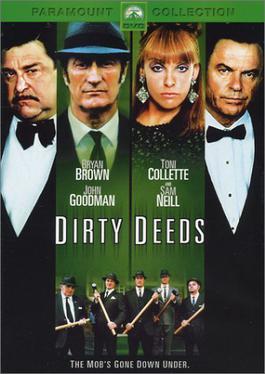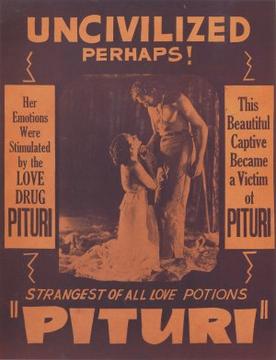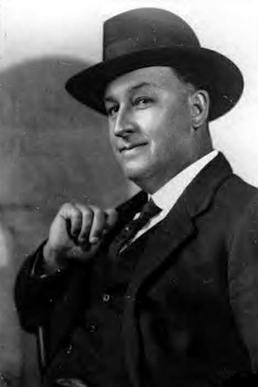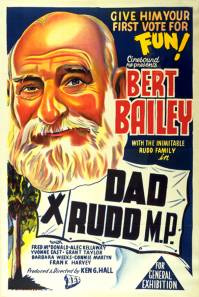
Jedda, released in the UK as Jedda the Uncivilised, is a 1955 Australian film written, produced and directed by Charles Chauvel. His last film, it is notable for being the first to star two Aboriginal actors, Robert Tudawali and Ngarla Kunoth in the leading roles. It was also the first Australian feature film to be shot in colour.

Dirty Deeds is a 2002 film shot in Australia. It was directed by noted fringe director David Caesar and stars Bryan Brown, Toni Collette, Sam Neill, Sam Worthington, John Goodman and Andrew Sommerich and produced by Nine Films and Television, the film and television production arm of the Nine Network, owned by PBL Media, now Nine Entertainment Co.
The Longford Lyell Award is a lifetime achievement award presented by the Australian Academy of Cinema and Television Arts (AACTA), a non-profit organisation whose aim is "to identify, award, promote and celebrate Australia's greatest achievements in film and television." The award is presented at the annual AACTA Awards, which hand out accolades for technical achievements in feature film, television, documentaries and short films. From 1968 to 2010, the award was presented by the Australian Film Institute (AFI), the Academy's parent organisation, at the annual Australian Film Institute Awards. When the AFI launched the Academy in 2011, it changed the annual ceremony to the AACTA Awards, with the current award being a continuum of the AFI Raymond Longford Award.
Rupert Kathner (1904–1954) was an Australian film director best known for newsreels and low-budget films. He worked with Alma Brooks, an ex-barmaid, who co-produced, operated the camera, edited, co-scripted and acted in their films. Kathner and Brooks were also "shady con artists and fugitives from the law", sometimes described as the "Bonnie and Clyde" of the Australian film industry.

Uncivilised is a 1936 Australian film directed by Charles Chauvel. It was an attempt by Chauvel to make a more obviously commercial film, and was clearly influenced by Tarzan.

Raymond Longford was a prolific Australian film director, writer, producer, and actor during the silent era. Longford was a major director of the silent film era of the Australian cinema. He formed a production team with Lottie Lyell. His contributions to Australian cinema with his ongoing collaborations with Lyell, including The Sentimental Bloke (1919) and The Blue Mountains Mystery (1921), prompted the Australian Film Institute's AFI Raymond Longford Award, inaugurated in 1968, to be named in his honour.
Arthur Embery Higgins was a pioneering Australian cinematographer known for his use of trick photography during the silent era. His ongoing collaborations with director Raymond Longford include The Sentimental Bloke (1919) and The Blue Mountains Mystery (1921). He briefly turned to directing with Odds On (1928) however returned to cinematography in 1931 for the remainder of his career.
Racing Luck is a 1941 Australian comedy film directed by Rupert Kathner and starring Joe Valli, George Lloyd and Marshall Crosby. The jockey Darby Munro, who had a cameo as himself, described it as the best Australian film he had ever seen.

Dad Rudd, M.P. is a 1940 comedy that was the last of four films made by Ken G. Hall starring Bert Bailey as Dad Rudd. It was the last feature film directed by Hall prior to the war and the last made by Cinesound Productions, Bert Bailey and Frank Harvey.

Bush Christmas is a 1947 Australian–British comedy film directed by Ralph Smart and starring Chips Rafferty. It was one of the first films from Children's Entertainment Films, later the Children's Film Foundation.
That Certain Something is a 1941 Australian musical film directed by Clarence G. Badger and starring Megan Edwards and Thelma Grigg. The plot concerns an American film director who decides to make a musical in Australia. It was the last film directed by Badger, a noted silent era director.
Phantom Gold is a 1937 Australian adventure film about the search for Lasseter's Reef. It was the first feature from director Rupert Kathner.

The Avenger is a 1937 Australian film directed by A. R. Harwood.
The Tide of Death is a 1912 Australian silent film directed by Raymond Longford based on an original story by Longford. This was rare at the time because most Australian silent films were based on plays or novels.
A Maori Maid's Love is a 1916 Australian silent film written and directed by Raymond Longford about an interracial romance between a white man and a Māori girl. It is considered a lost film as there are no known copies.
The Dinkum Bloke is a 1923 Australian silent film directed by Raymond Longford. Despite the title and the presence of Arthur Tauchert and Lottie Lyell in the cast, the film is not a direct sequel to The Sentimental Bloke (1919) or Ginger Mick (1920).

Captain Midnight, the Bush King is a 1911 Australian silent Western film about the fictitious bushranger Captain Midnight. It was the directorial debut of actor Alfred Rolfe. The film is based on the play of same name by W. J. Lincoln and Alfred Dampier. Captain Midnight, the Bush King is now considered lost.
Tasman Higgins was an Australian cinematographer during the early days of the Australian film industry, working for such directors as Charles Chauvel, Raymond Longford, Beaumont Smith, Louise Lovely and Rupert Kathner. He was the brother of Arthur and Ernest Higgins, with whom he occasionally collaborated.
George Wallace Donald Crosby, OAM was an Australian actor of radio, stage, television and film, radio producer, stage manager, airman and trade unionist.
John Fernside was an Australian actor who worked extensively on stage and screen from the 1910s through to 1950s. He co-starred with Chips Rafferty in two Australian films of the 1940s; The Overlanders (1946) and Bush Christmas (1947).








